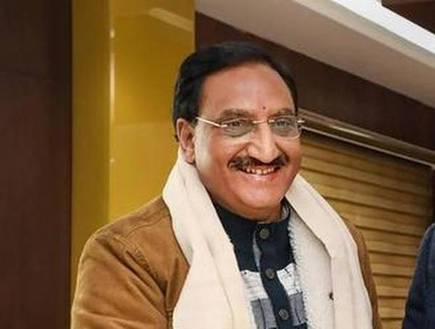New Education Policy 2020: The New Education Policy (NEP) was approved by the Union Cabinet on July 29, 2020, i.e. Wednesday with the HRD Ministry getting renamed as Education Ministry. Union Minister for Human Resource Development (HRD) Ramesh Pokhriyal Nishank and Information and Broadcasting (I&B) Prakash Javadekar together released the New Education Policy.
New Education Policy 2020
The NEP thus released would be a single regulator for all the schools and higher education institutions with the MPhil being discontinued. Prime Minister Narendra Modi had earlier reviewed the NEP 2020 back on May 1. The draft for NEP 2020 was prepared by a panel of experts led by former Indian Space Research Organisation (ISRO) chief K Kasturirangan.
Also, Read: Sanjay Dutt’s look as Adheera in KGF 2 revealed
The NEP 2020 has been enforced to ramp up digital learning by creating a National Educational Technology Forum (NETF). Higher Education Secretary, Amit Khare informed that currently, digital learning doesn’t offer much for the learners who are seeking content in regional languages. Hence, the E-courses will be developed initially in eight regional languages along with the facility of virtual labs. The languages include Tamil, Telegu, Kannada, Malayalam, Gujarati, Marathi, Bengali, and Oriya.
The new academic session is going to begin from September-October this year as it has been delayed due to the outspread of the coronavirus pandemic. The government is thus aiming to introduce the new policy before the start of the new session.
New Education Policy Highlights:
- Extension of Right to Education, covering children from 3-18 years, which currently covers the children under the age of 14. In this way, NEP aims to universalize pre-primary education and provide foundational literacy to all by 2025.
- The NEP 2020 comprises 5+3+3+4 curricular and pedagogical structure which means Foundational Stage (age 3-8 yrs): 3 years of pre-primary plus Grades 1-2, Preparatory Stage (8-11 years): Grades 3-5, Middle Stage (11-14 years): Grades 6-8 and Secondary Stage (14-18 years): Grades 9-12.
- NEP also provides the students to choose subjects from various streams of arts, humanities, sciences, sports, and other vocational subjects.
- NEP will also create a new highest regulating body headed by the Prime Minister of India and will be called Rashtriya Shiksha Aayog or National Education Commission
- NEP also recommends the setting up Indian Institute of Translation and Interpretation (IITI), National Institute (or Institutes) for Pali, Persian and Prakrit, strengthening of Sanskrit and all language departments in HEIs, to preserve the Indian languages as the medium of teaching will also be in the local language.
- To promote technology in educational autonomous body, NEP aims to create the National Educational Technology Forum (NETF) to provide a platform for the free exchange of ideas on technology to enhance the learning and administration.
- The Board exams for Class 10 and 12 will continue, however, the system of Board and entrance examinations will be modified to remove the necessity of taking coaching classes and the students will be able to choose the subjects of their choice.
- There will be 2 board examinations to test concept and knowledge application. The students will take 2 board exams in a year comprising one main examination while others for improvement if required.
- The three languages that a student will learn will be based on the choices of State, region, and student, however, two out of three languages must be native to India.
- The entrance examinations for admissions to national universities will be conducted by the National Testing Agency (NTA) and the NEP will have some similarities to standardized aptitude test (SAT) as conducted for admissions in the USA.
Meanwhile, the National Education Policy was firstly adopted in the year 1986 and was modified in 1992. Draft NEP has been drafted by the government in May 2019 which aims to provide quality education to the children under the age group 3-18 by 2030.
Table of Contents







Add Comment